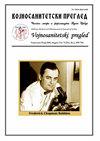Urinary tract infections in children with cancer and febrile neutropenia - single center experience
IF 0.2
4区 医学
Q4 MEDICINE, GENERAL & INTERNAL
引用次数: 0
Abstract
Background/Aim. Urinary tract infections (UTI) in children with febrile neutropenia (FN) after receiving chemotherapy could be followed by atypical symptoms and signs of UTI. Absence of routine sampling of urine culture for analysis could lead to undiagnosed disease and inadequate treatment of these patients. The aim of the study was to indicate the importance of sampling of urinoculture in children who have developed febrile neutropenia and to point out the most probable causative agents of UTI in children with FN and antibiotic sensitivity/resistance of the isolated strains. Methods. During a five-year observation period, 40 UTIs were registered in 30 patients with FN. In the study group of patients with FN the number of UTI, the number of recurrent UTI, isolated pathogens, their sensitivity to antibiotics, characteristics of urine sediment, the presence of localized symptoms of urinary tract infection and presence of urosepsis were analyzed. The obtained results were compared with the control group which consisted of children who were healthy prior to hospitalization due to febrile urinary infection. Results. When compared to the control group, significant differences in the presence of symptoms of urinary tract infection and urine sediment findings in patients with febrile neutropenia were observed. Higher percentage of resistant strains of Escherichia coli were isolated from urine culture of cancer patients with FN was noted when compared to the control group. Three UTI cases were followed by urosepsis. Conclusion. Urine culture findings are important not only in establishing the diagnosis of UTI and detecting multi-resistant bacterial strains, but also in appropriate antibiotic choice and selecting subgroup of patients with recurrent UTI who require further monitoring and detecting potential complications in a timely manner.儿童癌症伴发热性中性粒细胞减少的尿路感染-单中心经验
背景/目的。发热性中性粒细胞减少症(FN)患儿接受化疗后可出现尿路感染(UTI)的不典型症状和体征。缺乏常规尿液培养样本进行分析可能导致未确诊的疾病和这些患者的治疗不足。该研究的目的是表明对患有发热性中性粒细胞减少症的儿童进行尿液培养取样的重要性,并指出FN患儿中最可能的尿路感染病原体和分离菌株的抗生素敏感性/耐药性。方法。在5年的观察期内,在30例FN患者中登记了40例uti。分析研究组FN患者尿路感染数量、复发尿路感染数量、分离病原菌及其对抗生素的敏感性、尿沉积物特征、尿路感染局部症状的存在及尿脓毒症的存在。将所得结果与因发热性尿路感染住院前健康儿童组成的对照组进行比较。结果。与对照组相比,观察到发热性中性粒细胞减少患者在尿路感染症状和尿沉积物发现方面存在显著差异。与对照组相比,FN癌症患者尿液培养中分离出的耐药大肠杆菌比例较高。3例尿路感染后并发尿脓毒症。结论。尿培养结果不仅对建立尿路感染的诊断和发现多耐药菌株具有重要意义,而且对合理选择抗生素和选择复发性尿路感染患者亚组进行进一步监测和及时发现潜在并发症具有重要意义。
本文章由计算机程序翻译,如有差异,请以英文原文为准。
求助全文
约1分钟内获得全文
求助全文
来源期刊

Vojnosanitetski pregled
MEDICINE, GENERAL & INTERNAL-
CiteScore
0.50
自引率
0.00%
发文量
161
审稿时长
3-8 weeks
期刊介绍:
Vojnosanitetski pregled (VSP) is a leading medical journal of physicians and pharmacists of the Serbian Army. The Journal is published monthly.
 求助内容:
求助内容: 应助结果提醒方式:
应助结果提醒方式:


